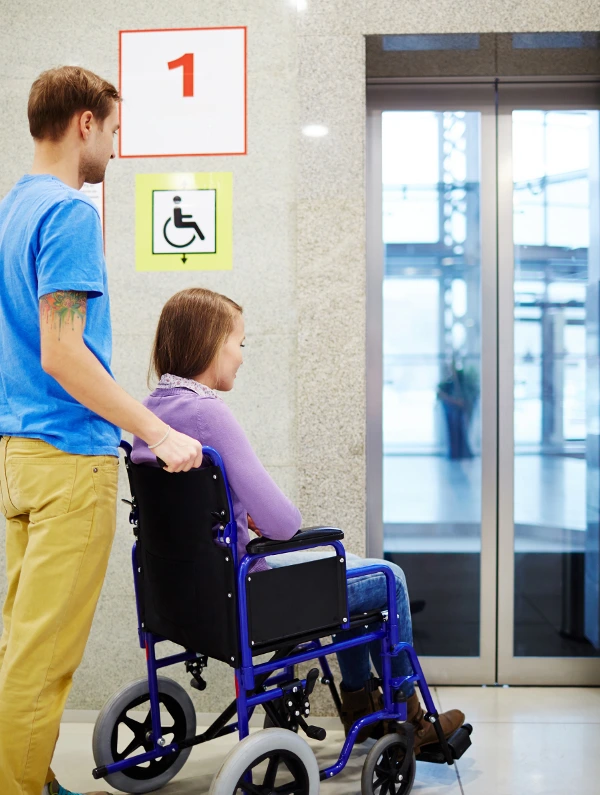Access to timely and reliable transportation is a crucial factor in ensuring better health outcomes—especially for individuals who face mobility challenges, chronic conditions, or lack access to private vehicles. Non-emergency medical transportation (NEMT) plays a pivotal role in addressing this gap, enabling patients to attend appointments, receive treatment, and maintain continuity of care without delay.
As the healthcare landscape continues to evolve, the importance of transportation as a determinant of health is becoming clearer. NEMT services not only support the health of individuals but also strengthen the well-being of entire communities.
The Growing Importance of Transportation in Healthcare Access
Missed medical appointments remain a significant barrier to health equity, particularly among elderly individuals, people with disabilities, and low-income populations. According to data from healthcare access studies, lack of transportation is one of the top reasons patients delay or skip care altogether.
This is where non-emergency medical transportation services step in. By offering scheduled rides to clinics, hospitals, rehabilitation centers, and dialysis units, NEMT providers help bridge the transportation gap, ensuring that health is not compromised due to logistical barriers.
Ambulatory Transportation: Serving Diverse Needs
Many individuals who require transport are still mobile but may not be well enough to drive themselves or use public transit. Ambulatory transportation caters to this group—providing a safe and comfortable ride for patients who can walk or use a cane but need assistance getting to their appointments.
Ambulatory services are an essential branch of NEMT, often overlooked but highly impactful. Unlike traditional taxi or rideshare services, drivers in this field are trained in patient handling, time sensitivity, and care-centered transport protocols.
The Community Impact of Reliable NEMT Services
Consistent access to medical appointments can lead to better chronic disease management, fewer hospital readmissions, and improved mental health outcomes. For communities, this means lower healthcare costs, reduced emergency service strain, and higher levels of overall wellness.
Services like MyMediRides exemplify the potential of quality NEMT operations. Their team of experienced and compassionate drivers ensures that patients are not only transported safely but also treated with dignity and respect along the way.
Whether it’s a follow-up visit after surgery, a scheduled therapy session, or routine bloodwork, NEMT provides more than just a ride—it delivers peace of mind and continuity of care.
Technology’s Role in Enhancing NEMT Efficiency
As with many sectors of healthcare, technology is revolutionizing how transportation services are delivered. Innovative platforms and software solutions help streamline ride scheduling, route optimization, and communication between patients and providers.
One such tool making waves in the home care and transportation industry is AuxoCare. AuxoCare is an AI-powered software designed to help seniors and their families schedule caregivers based on non-medical emergency needs. While it focuses primarily on home care services, the core concept—intelligent, user-friendly scheduling—has direct relevance to NEMT operations.
By integrating similar smart scheduling features into transportation services, companies can improve response times, minimize cancellations, and personalize transport solutions based on patient profiles. The potential for collaboration between tools like AuxoCare and NEMT providers offers exciting possibilities for integrated care delivery.
Addressing the Needs of a Growing Aging Population
The U.S. is experiencing a demographic shift as the senior population grows. This aging trend will inevitably increase demand for services that support independence—chief among them, medical transportation.
As more seniors choose to age in place, the need for both non-emergency medical transportation and in-home care support will rise. NEMT services that can coordinate with home health agencies, clinics, and platforms like AuxoCare will be best positioned to meet this challenge.
Conclusion: A Vital Piece of the Healthcare Puzzle
While it may not always make headlines, NEMT plays a vital role in the healthcare ecosystem. It ensures that vulnerable populations receive the care they need, when they need it, without placing added stress on emergency services.
By investing in reliable ambulatory transportation and integrating modern solutions like AuxoCare, the healthcare industry can take a big step forward in making care accessible, consistent, and compassionate for all.
As we continue to prioritize preventative care and chronic condition management, NEMT services like MyMediRides will remain essential allies in promoting healthier, more connected communities.

